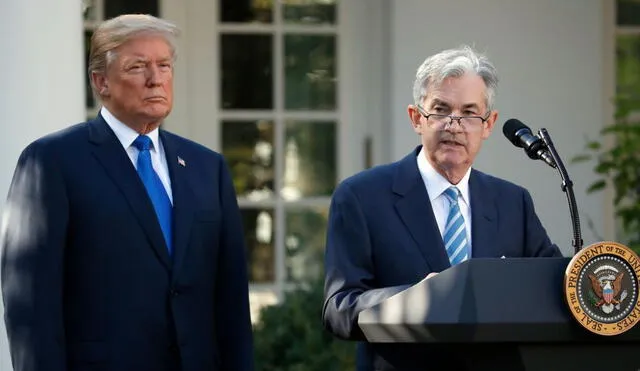Controversy over the independence of the Federal Reserve. Trump's attack
Trump insists he could remove the Fed chairman for refusing to lower interest rates, raising concerns in financial markets and among political leaders.

The president Donald Trump has intensified his criticism of Federal Reserve Chairman Jerome Powell, highlighting the importance of keeping central banks free from political pressure. During an appearance in the Oval Office, Trump threatened to remove Powell, angered by the institution's refusal to lower interest rates more aggressively amid an economic climate marked by uncertainty and the consequences of its tariff policy.
Tensions between Trump and the Fed have once again shaken the markets, reflecting the damage that politicizing monetary policy can cause. Although Powell has been criticized by sectors of both parties, his continued tenure is seen by analysts and lawmakers as a guarantee of stability. Trump's offensive calls into question the autonomy of an institution that is key to the US economy, especially in a context where technical decisions must be kept separate from electoral calculations.
Clash of visions: Powell warns, Trump pressures
Powell's recent remarks at the Economic Club of Chicago warned about the inflationary effects of the tariffs imposed by Trump, warning that the cost of these measures would ultimately be borne by consumers. The president's response was swift. Visibly annoyed, he dismissed Powell's technical warnings, clinging to his view that tariffs are a magic tool to boost the economy and domestic industry.
This confrontation is not new, but it is now taking on a more dangerous tone. With a White House more aligned with his wishes, Trump seems more willing than ever to take radical measures against those who do not align with his economic vision. The suggestion that he could fire Powell has alarmed economists and lawmakers, who recall that the Fed was designed as an independent institution precisely to prevent interest rates from being used as a political weapon.
Economic and political risks of a Fed intervention
If the president intervenes directly in the Federal Reserve, the effects would be the detrimental: international credibility would be lost, financial volatility would increase, and a new wave of inflation could be unleashed. The strength of the dollar and market stability depend largely on the perception that the United States has a predictable and professional monetary policy, something that would be jeopardized if Trump's threat is carried out.
For now, the US economy is already showing signs of fragility. Consumer confidence has fallen, businesses are struggling to plan for the future, and tariff policies have begun to cause shortages and raise prices. In this scenario, a weakened or manipulated Federal Reserve would only exacerbate the problems, fueling fears of an imminent recession. Even if Trump does not act, the mere hint of Powell's possible dismissal is enough to sow doubt and anxiety in the markets.act, the mere hint of Powell's possible dismissal is enough to sow doubt and anxiety in the markets.













